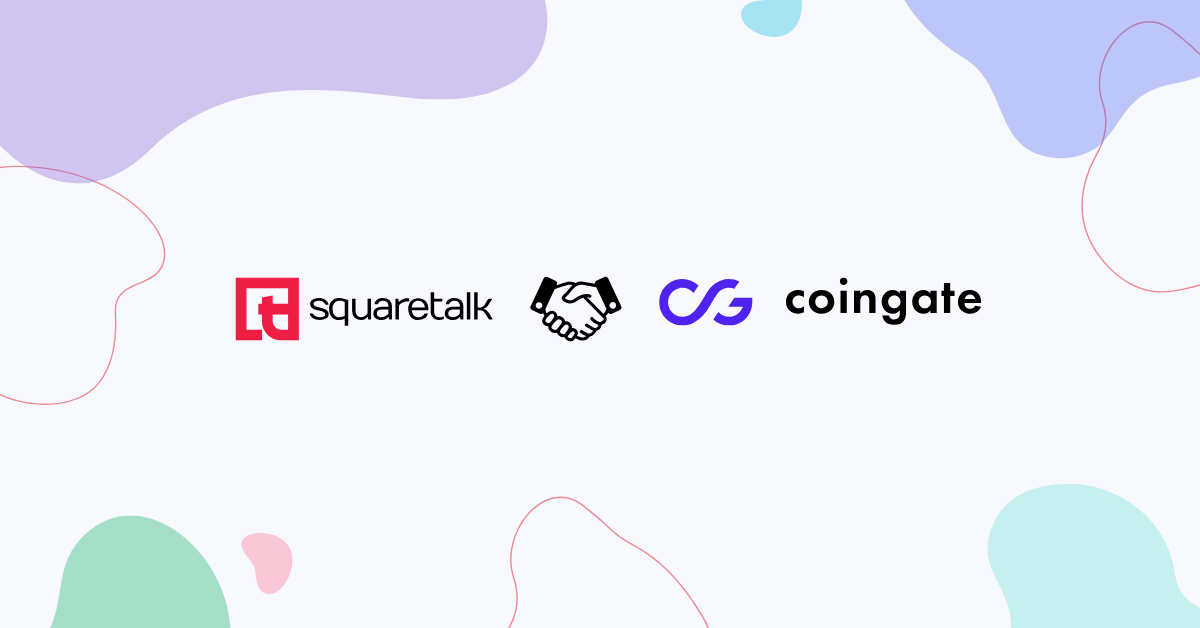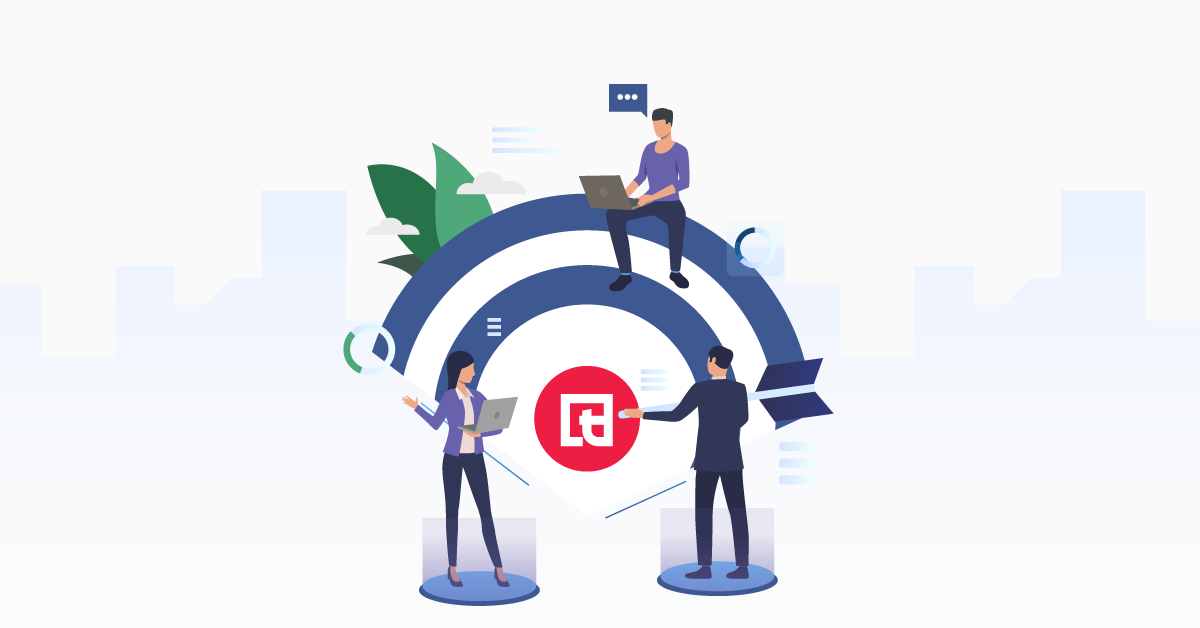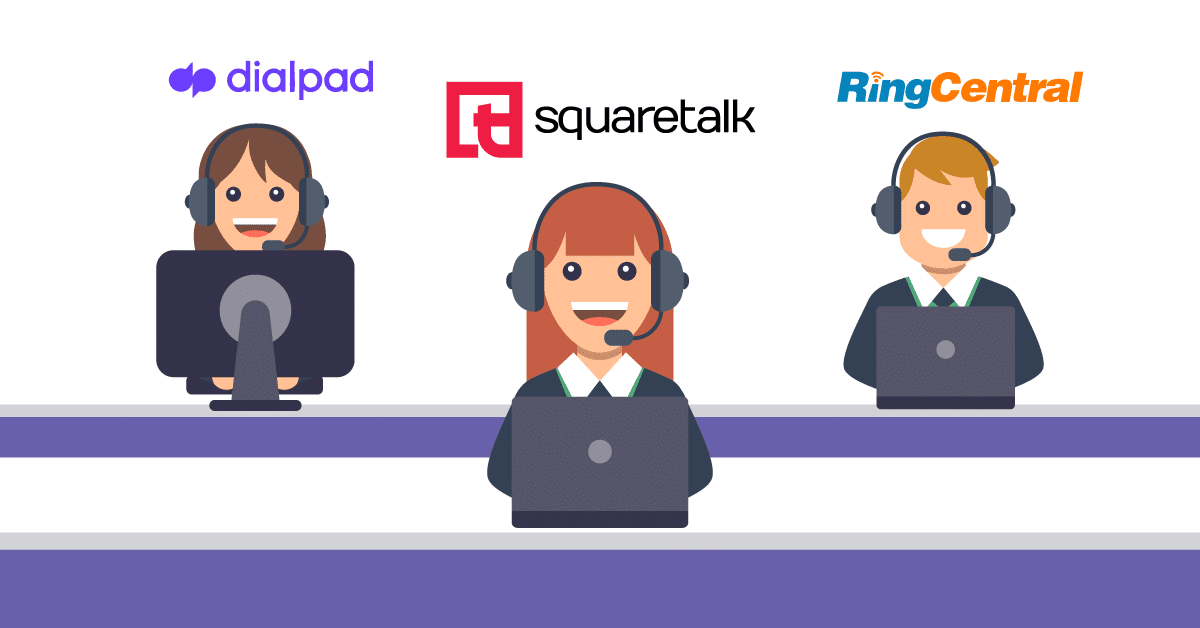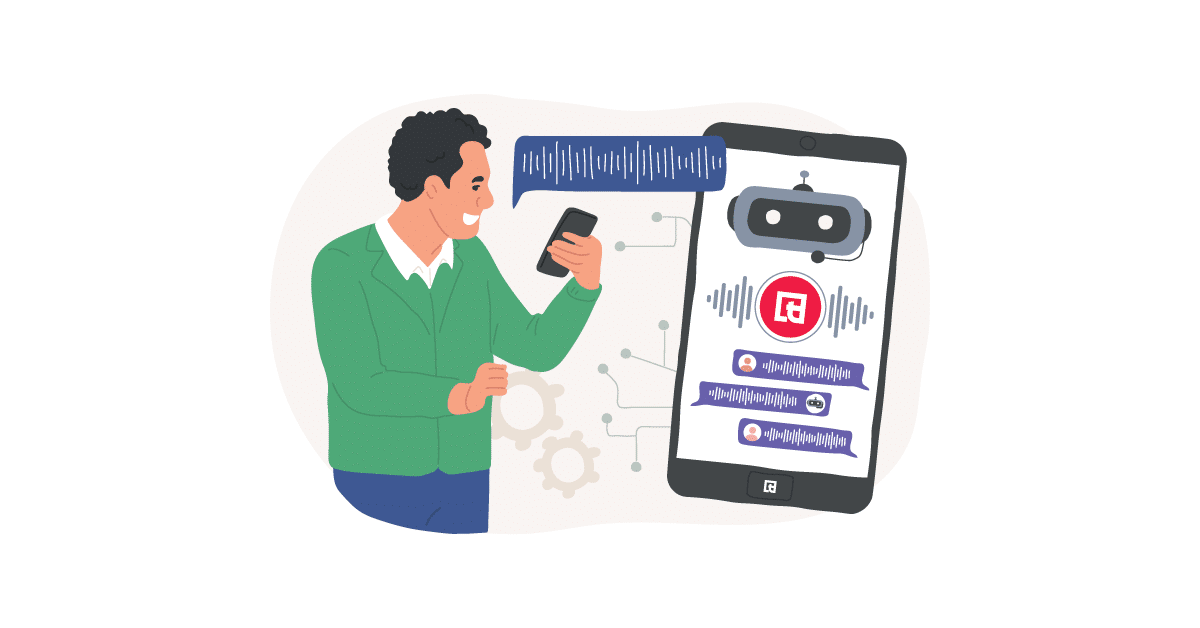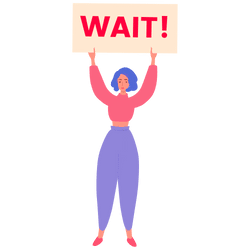Everyone wants to win a lead over from the first “hello”.
In an ideal world, agents would spend as much time as needed finding the prospect’s pain points, desires and must-haves and tailoring your value proposition the their needs. Every call would be answered and result in a closed deal.
Reality, however, is often an overwhelming mix of manual dialing errors, voicemails, disconnected numbers, dropped calls and scripted conversation with little space for customization. In the race for clients, the quality of interactions is frequently sacrificed for quantity.
If personalization and efficiency are equally important for your outbound success, your best bet might be using a power dialer. It helps your agents connect with more prospects in less time, while giving them control over the pace of calls and time to prepare between conversations.
But how does a power dialer work and what do you need to know before choosing one?
Let’s find out.
What Is a Power Dialer?
Power dialers are automated dialing systems used mostly by sales and customer service teams to streamline their work.
The dialer rings one contact at a time for each available agent, moving on to the next number in the list as soon as the current call is finished, goes unanswered or to a voicemail.
When a call is answered, it is immediately routed to an available agent. They are ready to speak, minimizing the wait time, improving the customer experience and increasing the talk time.
If a call goes unanswered, you can program the power dialer to leave a voicemail message or schedule a callback.

What Is a Power Dialer Best For?
Power dialers offer a more balanced approach to outbound calling. Unlike predictive dialers, they maintain a 1:1 ratio between calls and available agents, ensuring your staff is not overwhelmed.
The bigger call pace control also gives your staff the time to review customer information before each interaction or when conversations are expected to be longer.
Power dialers work well for teams that need to make many sales calls in quick succession to follow up on warm leads. For lists of existing customers, they allow agents to schedule and automate follow-ups, maintain and strengthen customer relationships, which increases retention and loyalty and the chanced of cross-selling and upselling.
Who Is a Power Dialer Best For?
Power dialers are ideal for:
- Sales teams that need to increase their calling efficiency, reach more potential customers in less time or quickly adapt their messages on the fly based on the lead’s responses
- Customer service agents who handle follow-up calls, appointment reminders and customer satisfaction surveys
- Debt collection agencies that have to contact a large number of debtors in compliance with strict regulations
- IT support teams that follow up with customers about tech issues or scheduled maintenance
- Financial institutions that need to remind customers about overdue payments, loan processing updates or account status changes
- Telemarketing companies that rely on outbound calls to sell their products or services
- Political campaigns that require extensive voter and fundraising interactions
- Nonprofits that need to reach out to donors and volunteers for fundraising campaigns
- Real estate agents who want to contact potential buyers, sellers and leads
- Medical offices that have to remind patients about appointments and check in on treatments
- Educational institutions that contact prospective students, schedule interviews and follow up on applications
- Marketing research firms that do phone surveys and collect data
What Are Power Dialer's Benefits?
Power dialers improve the efficiency and effectiveness of outbound calling campaigns by ringing one number after the other. This ensures agents are consistently engaged in outbound calls without the downtime and errors of manual dialing.
Other benefits include:
Higher Engagement Rates
Power dialing improves your customer engagement by automating and optimizing the dialing process, timing and personalizing interactions. The real-time monitoring helps you make data-driven adjustments. These features maximize the efficiency and effectiveness of your outbound campaigns and get you better overall results.
Improved Lead Management
Power dialers can integrate with Customer Relationship Management (CRM) systems to provide agents with real-time detailed customer information, including previous interactions, purchase history and preferences. This helps them make interactions more relevant and engaging for the customer.
Increased Call Quality
Power dialers use mechanisms and tools to streamline the calling process, improve agent performance and ensure that calls are more effective, like Automated Call Distribution (ACD), reduced idle time, call monitoring and training, automated voicemail drop, pre-set call dispositions, real-time analytics, custom reports, regulatory compliance features and more.
Controlled Call Pacing
Optimizing the rate at which calls are made balances efficiency and quality, with your agents being always busy but not overwhelmed. By carefully controlling the call rate, power dialers minimize the time agents spend waiting between calls, increase the chances of reaching live contacts and reduce the number of missed or abandoned calls. This can be crucial for delicate or complex sales operations where each customer interaction requires preparation and follow-up.

Easy Scalability
Power dialers can easily accommodate varying numbers of agents, which is great for growing businesses or those with seasonal call volume fluctuations. Power dialers can also handle a significantly higher volume of calls compared to manual dialing. This allows you to scale without a proportional increase in staff or generalizing the client interactions.
Cost Effectiveness
Power dialers offer an affordable way to boost your productivity without the complexities, and the price tag, of some other dialing systems. The automation reduces the need for extensive manual labor, lowering operational costs and improving your bottom line, especially for small to mid-sized teams. By increasing the number of successful calls per agent, you can significantly increase your ROI.
Communication Consistency
Power dialers ensure that each customer interaction is consistent, timely, professional and aligned with your business goals. The use of standardized call scripts ensures that all agents maintain a uniform brand voice and message. Some power dialers offer dynamic scripting, which adjust the script based on customer responses. This helps agents maintain a consistent service quality and message while still personalizing interactions.
Customer Retention
By automatically scheduling follow-ups, reminders or check-ins based on predefined criteria or customer behavior, proactively contacted, engaged and informed. Segmenting customers allows you to tailor campaigns and address specific needs or preferences. Power dialers can also be used to run loyalty programs and promote new benefits, exclusive offers or events.
What Are Power Dialer's Drawbacks?
- The constant dialing can create pressure on agents to keep up with the pace, potentially leading to stress and burn out.
- The power dialer's effectiveness heavily relies on your connection rates, list quality and calling strategies.
- It's not efficient for campaigns with a large lead database, high volume of calls or low level of interactions.
- Integrating power dialers with your business tools can be complex and need significant technical support.
- Compliance with regulations like the Telephone Consumer Protection Act (TCPA) and Do-Not-Call lists can be challenging.
- Power dialers need a stable and reliable internet connection, so any disruptions can halt your operation.
- Technical issues or system downtime can also impact productivity.
- Setting up the system can require a bigger upfront investment in software and training.
Power Dialer Compered to Other Dialing Systems
As with everything else in life, the choice of dialing system heavily depends on your circumstances. What does your operation value more, personalization or efficiency?
Prower Dialer vs. Auto Dialer
Both streamline the process of making outbound calls, but they have different functionalities and use cases.
Auto dialers automatically dial a list of phone numbers, one at a time. They are very straightforward and can deliver pre-recorded messages or connect the call to an agent once a live person answers. It’s estimated that having an auto dialer can increase talk time by as much as 200–300%
In direct opposition to power dialers, auto dialers are best for high-volume, low-engagement campaigns like mass notifications, emergency alerts or simple surveys where the primary goal is to reach as many people as possible with minimal human interaction.
Power Dialer vs. Progressive Dialer
They are have very similar calling strategies and outcomes, with a few nuances.
Both dial one number at a time, but the progressive dialer does it only if an agent is free to handle the interaction. This minimizes call abandonment and ensures that every lead is connected to a live agent immediately.
The progressive dialer allows for more personalized communication and higher call pace control at the cost of some efficiency. Power dialers have a bit faster pace and could potentially handle larger call volumes, but with progressive dialing, your agents have a steadier and precisely planned call flow with more time to review customer information between interactions. This is ideal when it’s crucial to have more personalization, high call quality and minimum call abandonment.
Power Dialer vs. Predictive Dialer

Here’s where the differences between the automated dialers and their use cases become more significant. Predictive, automated predictive and AI predictive dialers all can handle larger call volumes, but offer less personalization.
With a more complex system also come higher initial and maintenance costs, increased risks of compliance issues and the need for careful management to avoid exceeding call abandonment rates.
Predictive dialers use statistical algorithms to estimate when an agent will be available to take a call and adjust the pace accordingly. It simultaneously dials multiple numbers and filters voicemails, busy signals and disconnected numbers to only connect your staff to live answers. Predictive dialers also provide detailed analytics on their accuracy, call outcomes and agent performance.
This approach significantly increases the number of calls your operation makes, minimizes agent idle time and improves productivity more than the power dialer does.
Predictive dialers are ideal for larger teams and call centers focused on maximizing outreach and efficiency. They are great for telemarketing, market research and high-volume sales that don’t need complex and personalized conversations.
Power Dialer vs. Automated Predictive Dialer
Automated predictive dialers use sophisticated algorithms to optimize the call process, timing, manage queues and adjust dialing patterns in real time. They keep agent almost constantly enageged in conversations. This makes them ideal for for high-density operations that need powerful management and analytics, like telemarketing, debt collection, political campaigning, market research, healthcare and educational institutions.
Power dialers, with their prioritization of call quality and personalization, work best for smaller teams, while automated predictive dialers maximize efficiency and volume for larger operations.
Like with all other predictive dialer systems, there’s a higher costs and risk of abandoned calls and lower customer satisfaction if there are not enough agents to handle the increased interaction volume.
Power Dialer vs. AI Predictive Dialer
AI predictive dialers are the most complex dialing systems. They use algorithms to analyze your call metrics, agent availability and customer data to optimize the calling pace and timing in real-time. This makes them ideal for larger teams and contact centers that want to maximize productivity and efficiency across both high-volume and high-touch campaigns.
AI predictive dialers offer the best balance between efficiency and customer engagement. With their CRM integration, machine learning and AI insights to tailor conversations to each individual customer.
AI predictive dialers are also highly scalable and can dynamically adjust to changing conditions and campaign needs.
What to Look for in a Power Dialer?
- User-Friendly Interface
- Easy Setup and Configuration
- CRM Integration
- API Access
- Automated Dialing
- Intelligent Call Routing
- Voicemail Drop
- Regulatory Compliance
- Data Security
- Real-Time Analytics
- Customizable Reports
- Scalable Infrastructure
- High Call Quality
- Call Dispositions
- Call Recording
- Customization Options

Mistakes When Choosing a Power Dialer
- 1. Not considering if the power dialer complies with regulations can lead to significant legal issues and fines.
- 2. Choosing a power dialer that doesn’t integrate seamlessly with your existing CRM system can disrupt workflows, reduce agent efficiency and scatter customer data.
- 3. Opting for the cheapest solution without considering functionality, support and scalability can lead to long-term issues and higher costs. You’d better calculate the total cost of ownership, including upfront costs, setup fees, training, ongoing maintenance, support fees and potential upgrades.
- 4. Overlooking agent experience and selecting a power dialer with a complex or unintuitive interface can result in a steep learning curve, reduced adoption and lower productivity.
- 5. Not ensuring the power dialer can scale with your business needs will limit your ability to handle bigger call volumes or add more agents.
- 6. Selecting a dialer with poor call quality can frustrate both your agents and customers, lower engagement and cost you opportunities.
- 7. Failing to thoroughly test or demo the software before committing can cause integration problems, reduced agent productivity, frequent downtimes, compliant risks, hidden costs, poor customer support and insufficient training.
Final Words
In the right scenario, power dialers are a game changer for optimizing outbound operations. They can significantly improve contact and conversion rates, allow more personalized interactions and boost agent productivity.
Knowing its strengths and limitations, use cases, key features to look for and must-have integration capabilities, you’re well on your way to answering the ultimate question – is the power dialer the best system for your business?
FAQ
What is a power dialer?
A power dialer is an automated outbound calling system that dials phone numbers from a contact list one at a time per agent and connects an answered call to an available representative. It moves to the next number when the current call is completed, minimal downtime.
What are the key benefits of using a power dialer?
- Increased Agent Productivity
- Improved Customer Experience
- Better Engagement Rates
- More Personalized Interaction
- Automated Voicemail Drops
- A Steady Flow of Calls and Reduced Idle Time
Are there any drawbacks to using power dialers?
Downsides include the potential for overwhelming agents due to increased call volume, compliance challenges, potential operational disruption due to system downtime or technical issues and a more time-consuming and costly setup.
What industries benefit most from power dialers?
Power dialers are a great choice for sales representatives and lead generation specialists; customer service and support teams handling follow-ups, appointment reminders and feedback surveys; collections and debt recovery agencies; telemarketers; nonprofit organizations organizing fundraisers and volunteers; real estate agents that follow-ups with potential buyers and sellers; medical offices and pharmacies that remind patients for appointments follow up on treatments; market researchers.
How to ensure the power dialer complies with regulations?
Look for features like:
- Do-Not-Call List Management
- Time Zone Management
- Call Recording and Monitoring
- Detailed Records of Calls and Interactions
How to know if a power dialer is right for your sales team?
Power dialers are a good fit for sales teams that make a high volume of outbound calls to a lot of leads. They work well for both cold calling and warm lead follow-up.
However, high-volume call centers may be better served by a predictive dialer. And teams that make fewer, highly personalized calls may prefer a preview dialer or call manually.
What are common mistakes to avoid when looking for a power dialer?
- Not Testing the Software
- Ignoring Compliance
- Focusing Only on Cost
- Neglecting User Experience
- Overlooking Scalability
- Not Checking Integration Capabilities
- Underestimating the Impact of Poor Call Quality


